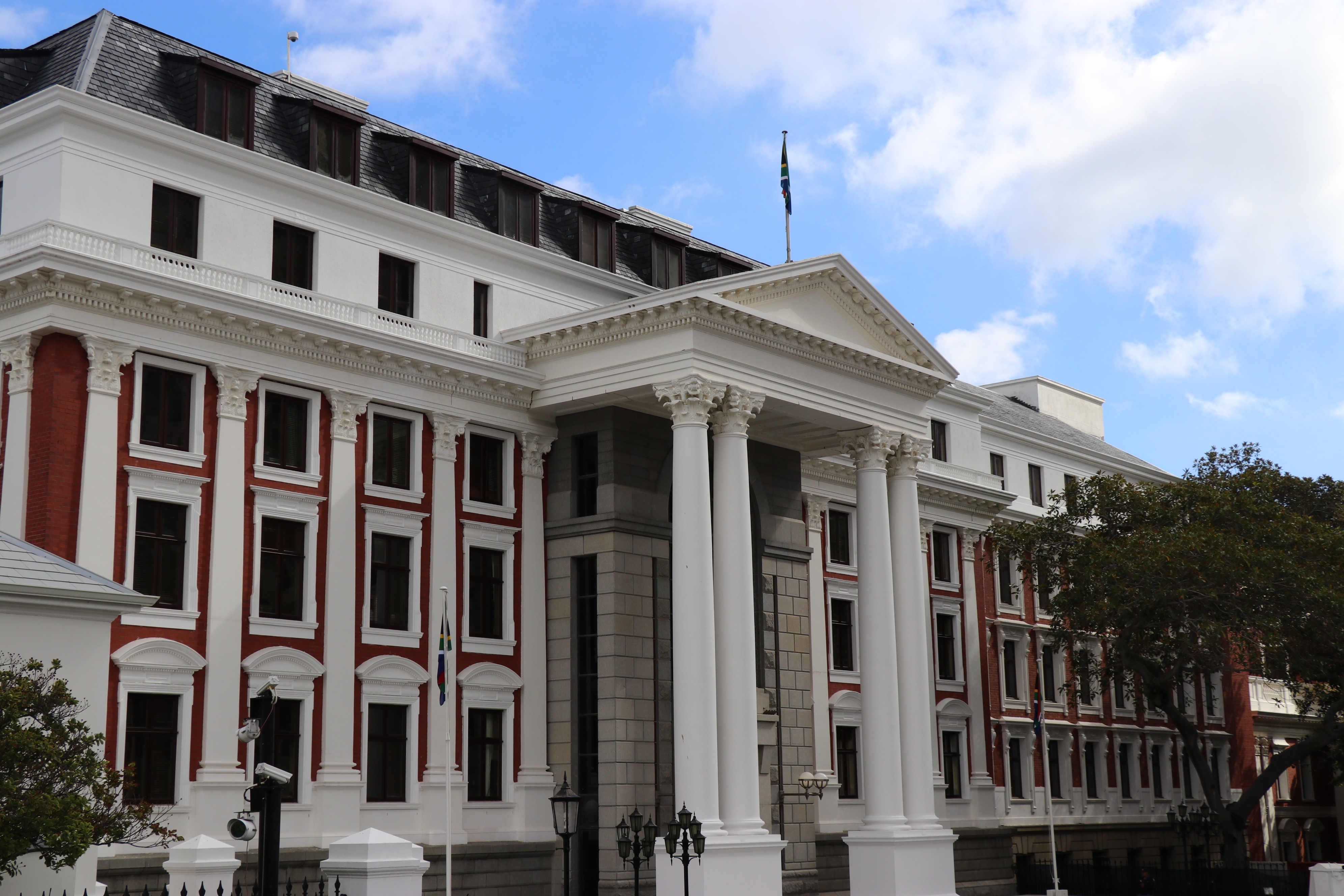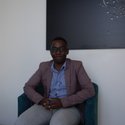South Africa
Young voices in parliament

South Africa parliament, 2018
© Friedrich Naumann Foundation for FreedomSouth Africa is facing a huge unemployment crisis, especially among young people, with just over 40% of young South Africans without jobs. The Democratic Alliance (DA) has subsequently adopted policies and strategies to create jobs, especially in the Western Cape where they are governing, and more recently also through the Government of National Unity (GNU). I sat down with three young members of the National Parliament, to discuss their vision, and plan to advocate for South Africa’s youth.
Being in Parliament for me is an opportunity, to carry the story to other young people, to say that as much as you are young, that's not all that defines you.

Hailing from South Africa’s largest province, the Northern Cape (geographically), Liam Jacobs (23), the DA Students' Organisation (DASO) Federal Leader, believes young people must be empowered.
“Being in Parliament for me is an opportunity to share a message with other young people: to say that while being young is part of who you are, it doesn’t define you entirely. You are someone with fresh ideas, capacity, and a unique outlook on what the world should be and how it should look. You can take what you believe in and adapt it in a way that only you can. I feel that more and more young people need to embrace their ability to do this and to be themselves in the political arena.”
Jacobs says he joined the DA because of the party’s values. “I felt that the DA is the right vehicle for the country because I looked at its values. I saw how these values are reflected in our Constitution and how they should reflect in our society. When we look at things like freedom, fairness, opportunity, and diversity, this is a party that represents those ideals and strives to embody them.”
I threw my name in the hat, not with the expectations of getting as far as I have, but because I was a person who felt they had something to contribute.

Mlondi Mdluli
Mlondi (26), who has worked in the NGO sector for about seven years, focusing on biology, conservation, and tourism, entered active politics through the DA Young Leaders Programme—an initiative by the party, supported by the FNF, to foster the growth and development of young people aspiring to make a difference in the country.
Reflecting on his decision to join the programme, he says his intention was “for personal development, personal leadership development, to see where I could go, because I've always been an ambitious person.” While he had no intention of entering formal politics, the year-long leadership programme, coupled with his reflections on the challenges faced by NGOs, motivated him to apply to become a Member of Parliament.
“I threw my name into the hat, not with the expectation of getting as far as I have, but because I felt I had something to contribute. In South Africa, as elsewhere in the world, if you just sit back and complain when things aren’t going as they should, and you don’t actually pitch in and do your part to make a difference, then nothing will change.”
He is the DA spokesperson on Environment, Forestry, and Fisheries, and so far, he describes the experience as enlightening. “It’s quite a responsibility to make that work, but it’s incredibly exciting because it aligns with my background. I’m able to bring my professional experience and academic training into crafting real change-making policy and action in South Africa at all levels. This ability to make a meaningful difference is exactly why I decided to make this career shift into politics.”
He explains that his goal is to contribute to the dialogue on climate change. “The dual crises of climate change and biodiversity loss are felt worldwide, but more so in Africa and third-world countries, making it an acute issue for us to address proactively. That is my passion: to make positive changes for the environment. I am very conservation-minded. South Africa has an incredible natural heritage, and I feel a responsibility to protect it.”
“I want people to understand how special and valuable it is—not only environmentally but also economically. We can leverage that value to create jobs. My goal this term, as a member of the portfolio committee for this department, is to assist our minister in making positive changes through his departments. I aim to hold him accountable while acting as a catalyst to ensure he has the best information and policies available. By pushing liberal policies, we can utilise the environment as a catalyst for economic development while simultaneously protecting the natural assets that make that development possible.”
It's always been my dream to be a parliamentarian and I'm glad that it happened now, especially at this age.

Andrew de Blocq
For Andrew (32), becoming a parliamentarian is a dream come true. “It’s always been my dream to be a parliamentarian, and I’m glad it’s happened now, especially at this age. I feel that I can be a voice for black youth, white youth, Indian youth, coloured youth, and youth in general. As we all know, South Africa has the highest rates of youth unemployment, and for years, our youth have been suffering.”
He believes that greater representation of young people in Parliament brings hope. “Seeing myself and other young people from other parties, for example, the ANC and the Patriotic Alliance (PA), says something. Being in Parliament, there is a glimpse of hope because we, as the youth, understand the challenges we face. Hopefully, we can use the platform we now have to make meaningful changes in Parliament for young people.”
De Blocq serves on the Trade, Industry and Competition portfolio in Parliament and aims to contribute to policy reform that will enhance economic growth.
“At the moment, as things stand, the country’s economy is simply not growing at the rate it should be. When compared to other comparable nations, such as Russia, Brazil, India, or even sub-Saharan countries like Nigeria, our economic growth is falling far short. Somewhere, somehow, things have gone wrong.”
He argues that cutting red tape and addressing crime are essential. “We need to cut red tape because it’s one of the factors holding the economy back. If we cut red tape, we can ensure that the economy grows. Once the economy grows, jobs can be created, and the unemployment rate will decrease.
“You also find that when people have jobs, crime decreases. Our country has become very unsafe, and our crime rate is alarmingly high. To some extent, this can be linked to the unemployment crisis we face. If we can solve the unemployment crisis through economic growth—which would lead to more companies investing—that would be a positive step forward. I hope to be a driving force behind this effort, to ensure we achieve as much economic growth as possible in key sectors of the country’s economy.”
